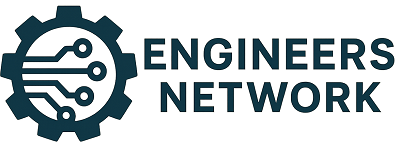Are you considering a career in Industrial Engineering? Do you want to know whether it is a good choice for you or not? This article will give you information about what industrial engineering entails and the requirements to be accepted into an Industrial Engineering program.
What is Industrial Engineering?
Industrial engineering is the application of engineering principles and practices to problems in the industrial environment. The field includes the design, analysis, management, and operation of factories, plants, and other industrial facilities. Industrial engineers work with various clients, including businesses, government agencies, and non-profit organizations. They often are involved in projects that significantly impact society or the environment.
Industrial engineers typically hold degrees in engineering sciences. However, many employers also accept engineer certificates or diplomas from accredited programs. Many industrial engineering programs include mathematics, physics, chemistry, and operating systems coursework.
The job outlook for industrial engineers is good. The Bureau of Labor Statistics (BLS) projects that the number of jobs in industrial engineering will grow by 18 percent from 2010 to 2020. Employment opportunities will be most plentiful in industries that are expanding rapidly, such as information technology and biomedical research.
Is Industrial Engineering a Good Career
Engineering is a field that can be very rewarding, but it can also be very challenging. If you’re wondering if industrial engineering is right for you, read on for some insights!
First and foremost, industrial engineering is a critical field. In fact, it’s one of the most important fields in terms of advancing technology and creating new products. This makes it a great career choice if you want to stay current on the latest industry trends and developments. Additionally, industrial engineering jobs are often in high demand, so if you have the skillset and ambition to succeed in this field, you’ll likely be able to find a good job relatively easily.
However, like any other career path, there are some downsides to consider when deciding if industrial engineering is right for you. For example, many engineers who work in this field spend long hours at their desks (sometimes working 70+ hours per week), so if you’re not into working long hours or prefer to take occasional breaks, this may not be the right path for you. Additionally, many engineers in industrial engineering careers require certification or a degree in engineering to get started (although there are
Benefits of a Career in Industrial Engineering
1. Industrial engineering offers a variety of benefits that can make it a good career choice. One of the most important benefits is working with many different types of customers and clients. This allows you to learn about different industries and how they operate, giving you invaluable insight when designing or solving problems. Additionally, industrial engineers often work on complex projects that require attention to detail and a thorough understanding of the various engineering principles involved. This knowledge can be invaluable in both the private and public sectors.
2. Another benefit of a career in industrial engineering is the ability to work on various projects. You may be required to design new products, improve existing ones, or help companies operate more efficiently by fixing problems. There are no limits to what you can achieve as an industrial engineer, so it’s worth exploring all of your potential career paths and opportunities.
3. Finally, a career in industrial engineering offers good prospects for growth and advancement. With experience and technical expertise in both engineering and business areas, you have the potential to move up in your field quickly. The industry is constantly evolving, so learning new skills regularly is essential if you want to stay ahead of the curve.
Industrial engineers can easily find themselves out of their comfort zone by working in an industry-changing industry. But by taking problem-solving and management skills to the next level, they can help companies achieve new heights while enjoying a work environment that is both challenging and rewarding.
What to Expect as a Career in Industrial Engineering
Industrial engineering is a good option if you’re considering an engineering career. In this field, you’ll design and operate equipment and systems that help produce goods or provide services. You may work on projects such as manufacturing plants, oil refineries, and transportation systems.
Requirements for this career vary depending on the type of engineering you choose, but typically you’ll need a degree in engineering or a related field. You’ll also need experience working with machines and systems, be able to think critically, and have strong problem-solving skills. Industrial engineers typically work in teams and use computers to analyze data.
Final Thoughts on the Profession of Industrial Engineering
If you’re considering a career in industrial engineering, there are a few things you need to know. First and foremost, this is a highly specialized field, so make sure you’re truly interested in the subject matter before pursuing an education in it. Second, industrial engineering is a challenging field that requires a lot of hard work and dedication. Finally, be prepared for long hours and often irregular work schedules. If all of this sounds like something you’d be interested in, then industrial engineering may be your career!




Leave a Reply